“A shimmer of Possibility” © Paul Graham
“A shimmer of Possibility” © Paul Graham
The English photographer Paul Graham is known for his use of color photography that astutely explores the social fabric of our lives. Travel has been an important catalyst for his work from the early 1980s, when he started working seriously as a photographer. Moving to America in the late-1990s proved to be a major turning point in his photographic work and life.
In this interview, he speaks about the many challenges he has taken on right up to the present, including publishing photography series and books that are meticulous in both concept and formatting, as well as future works in progress.
Thank you. That's because it's hard for an artist to get trapped into doing the same thing for 20, 30, 40 years. What a terrible fate!
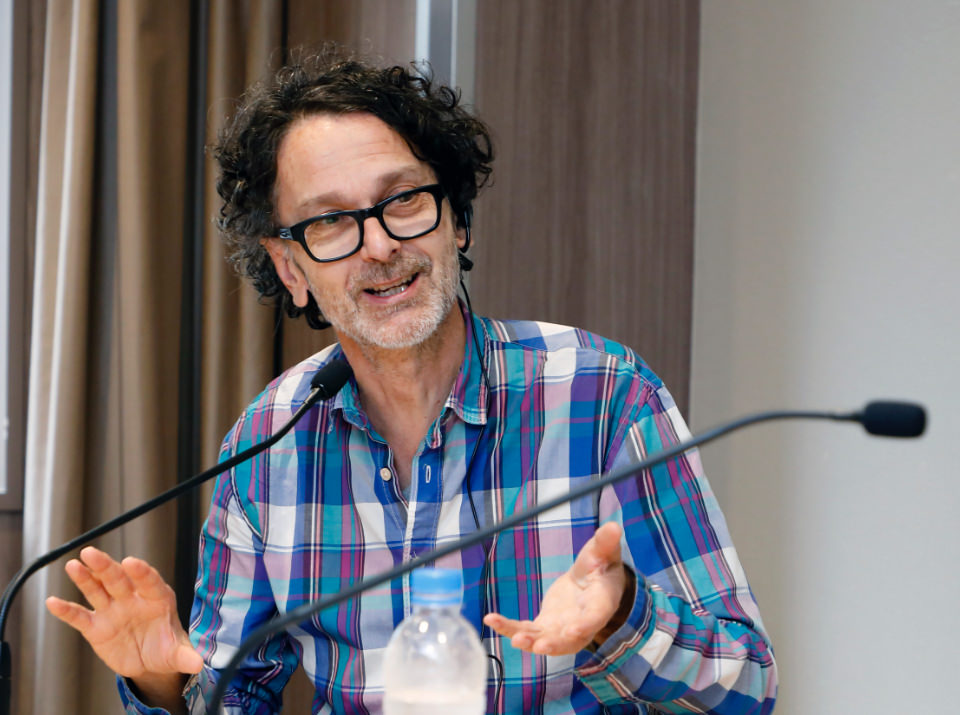
When you move countries mid life, it is actually very liberating. In those days, I was living with the least amount of belongings.— I could get everything I owned in NYC into 2 suitcases, which made me feel very agile and free. I could move apartment on the subway! That moment of freedom is hard to recognize, usually you miss it, and only see it when you look back, but I got a 2nd chance, and took it: traveling to Detroit, New Orleans, Memphis, Arizona, California, Texas, the mid-west; many cities on the west coast, as well as New York, Boston, and the east coast, and so on. Instead of working from a car, I used my feet in suburban areas and other many typical everyday places. I was trying to capture life in passing as a flow of time, rather than taking pictures that freeze life in a small rectangle. What's a good way to put it?... I saw the flow life as endless moments moving together... Someone called them as being like a visual haiku. I ultimately put these photos together in a collection called A Shimmer of Possibility (2007).
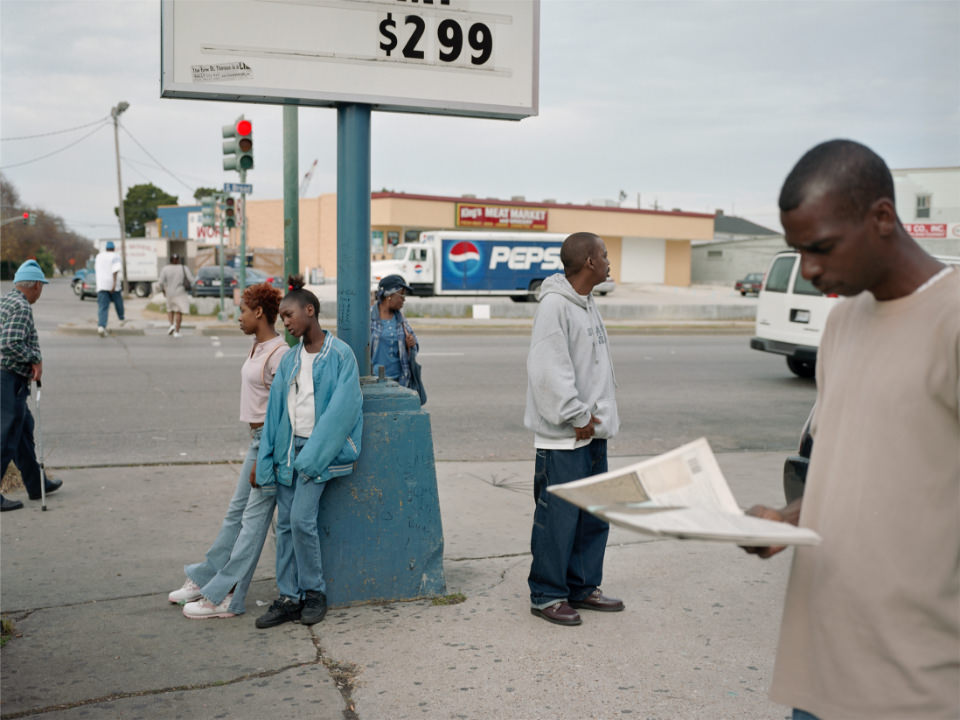
“A shimmer of Possibility” © Paul Graham
My photography is self-taught, and I had learned, or self-educated, from books published in the U.S. and Germany that producing a photo collection seemed the natural thing to do. Almost instinctual. So book publishing is a very important endeavor for me.
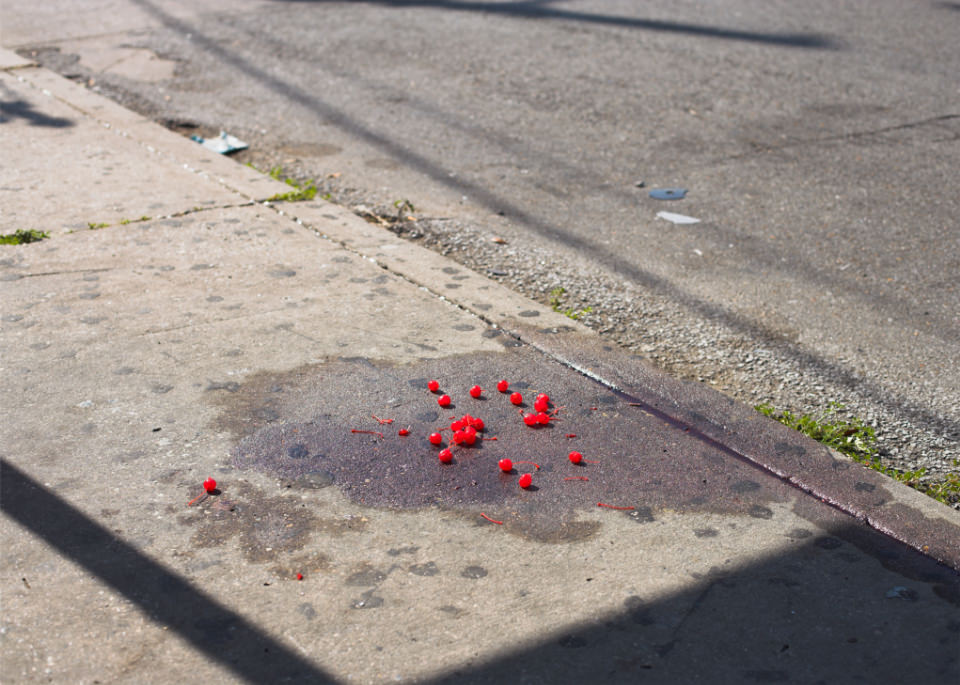
“A shimmer of Possibility” © Paul Graham
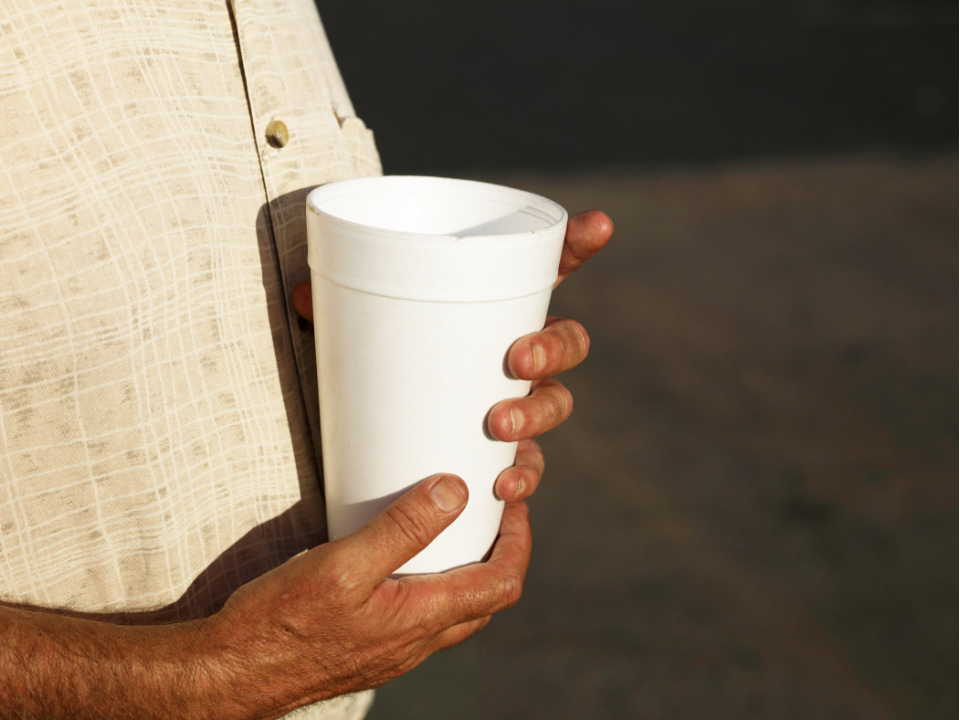
“A shimmer of Possibility” © Paul Graham
Ok, yes, Films was a somewhat unusual book. Although the images look like abstract, in fact they are not. It is quite simple: I gathered together negatives I had taken for various series over 30 years and scanned them at ultra-high resolution to convert them to digital. When you magnify film this much, you clearly identify the rudimentary chemical grain structure that constitutes a photograph. The magnified images are incredibly beautiful. The base film material is coated with a photosensitive emulsion sensitive to reds, blues, and greens, which form the colors of your images. Film is a highly complex and wondrous scientific development, but at the same time it is a very old analog medium. In effect, this collection declares “Farewell Film” in imitation of Farewell Photography, paying homage to the medium of film.
That's right. It's a break-up cliché: “I love you, but farewell.”
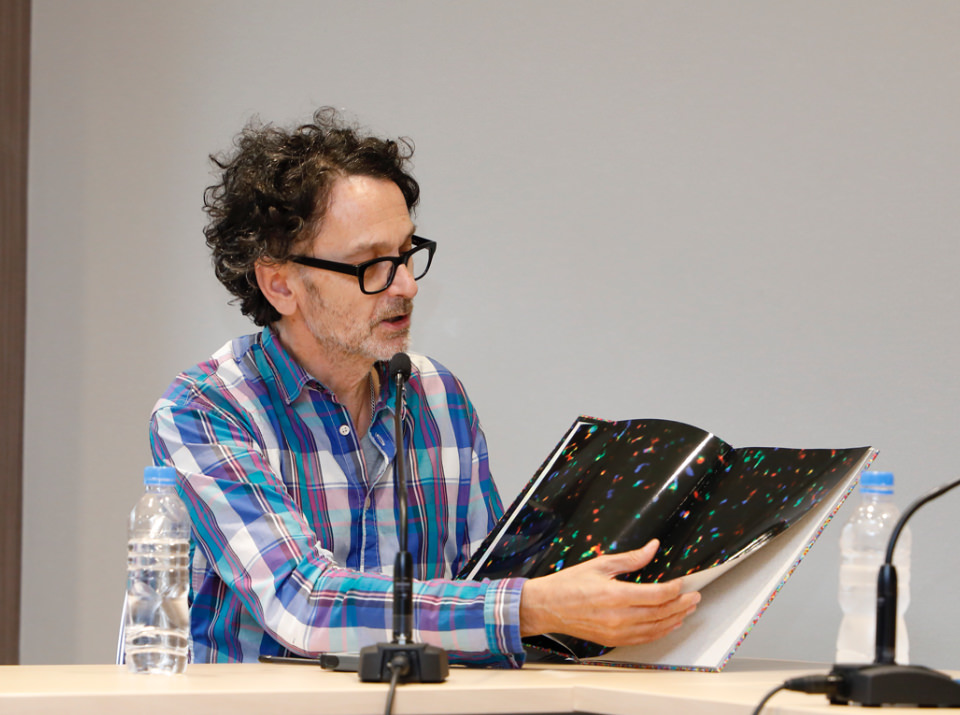
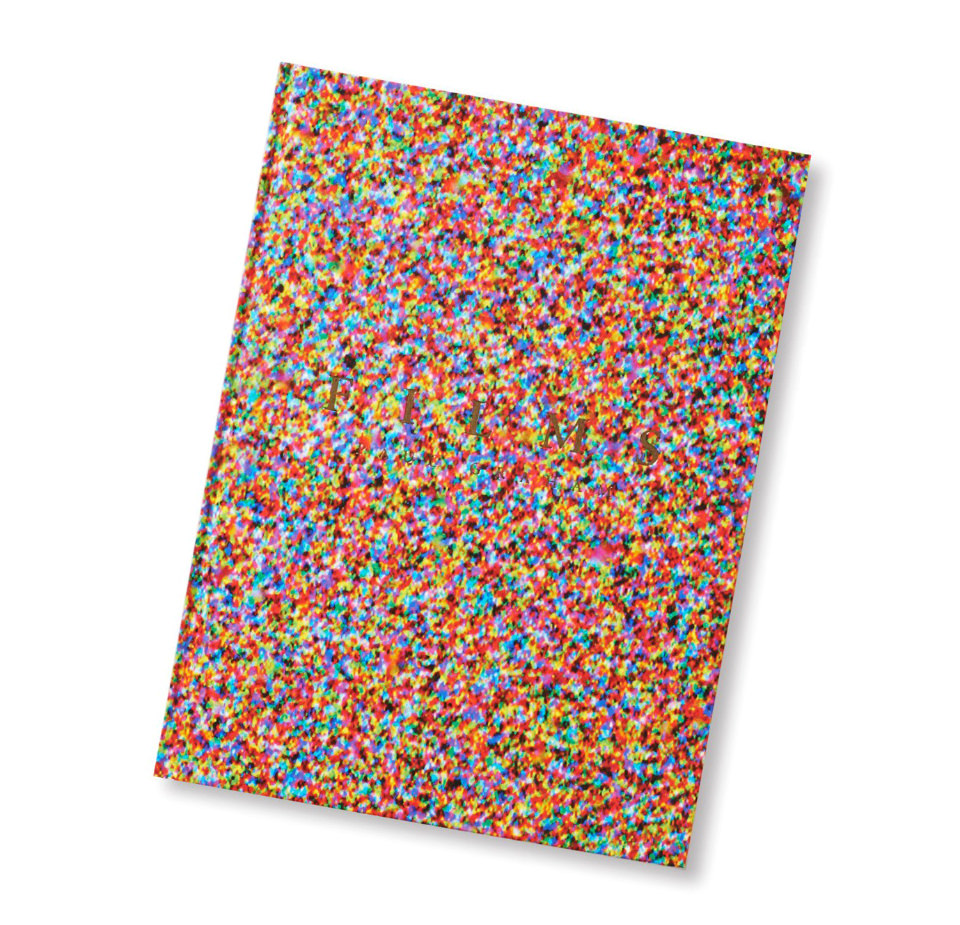
© Paul Graham
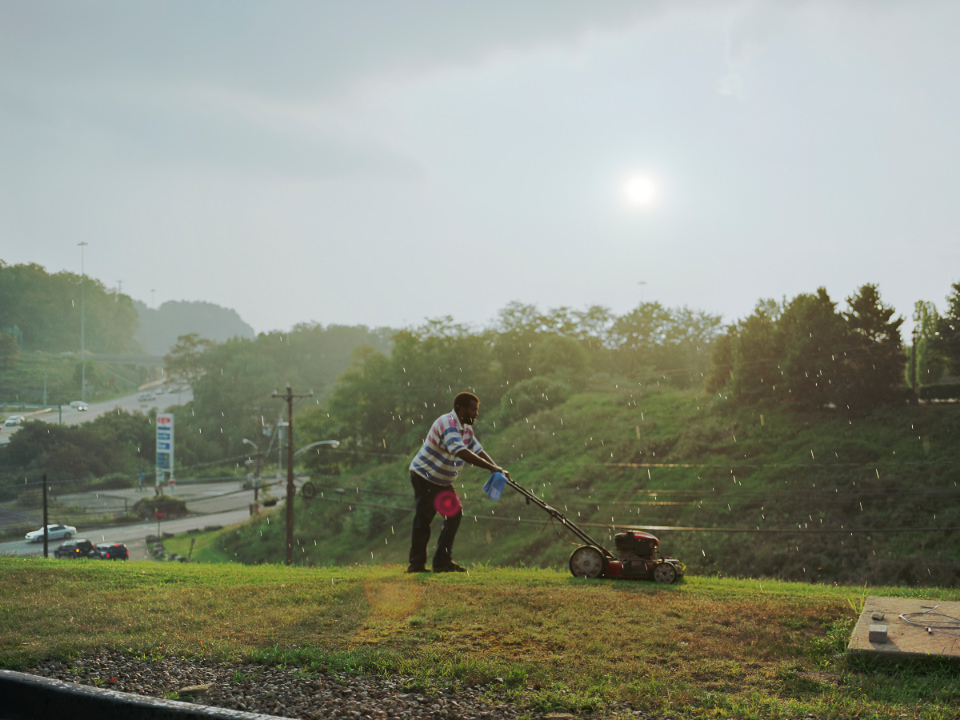
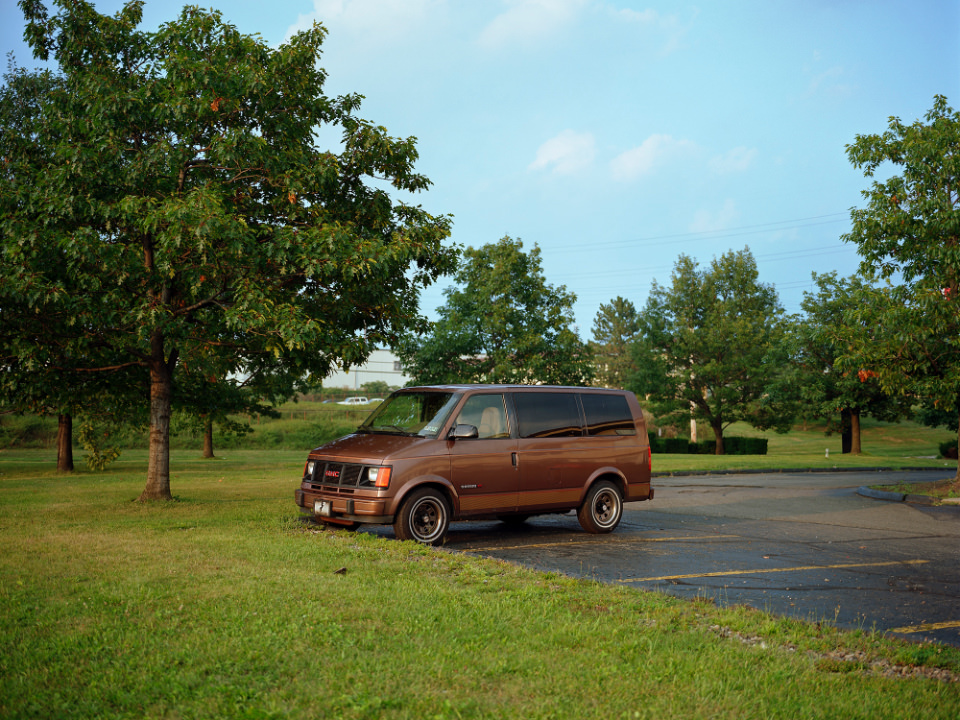
“A shimmer of Possibility” © Paul Graham
There are several, but one is a series of portraits of my mother, who is now 90 and lives in an old English village. I photographed her sitting in the same armchair over a couple of years. The images captured her in the same place — sitting in the one armchair, in the corner of her room, year after year, mostly asleep. Her clothes and hair changes a bit, but that is it really. It's quite meditative. They were published in a collection titled Mother this autumn. I think an exhibition is also coming in Berlin this spring.
I'd like to do more portraits. I produced a series long ago called Television Portrait (1986 to 1990), which were portraits of people lost in watching television.
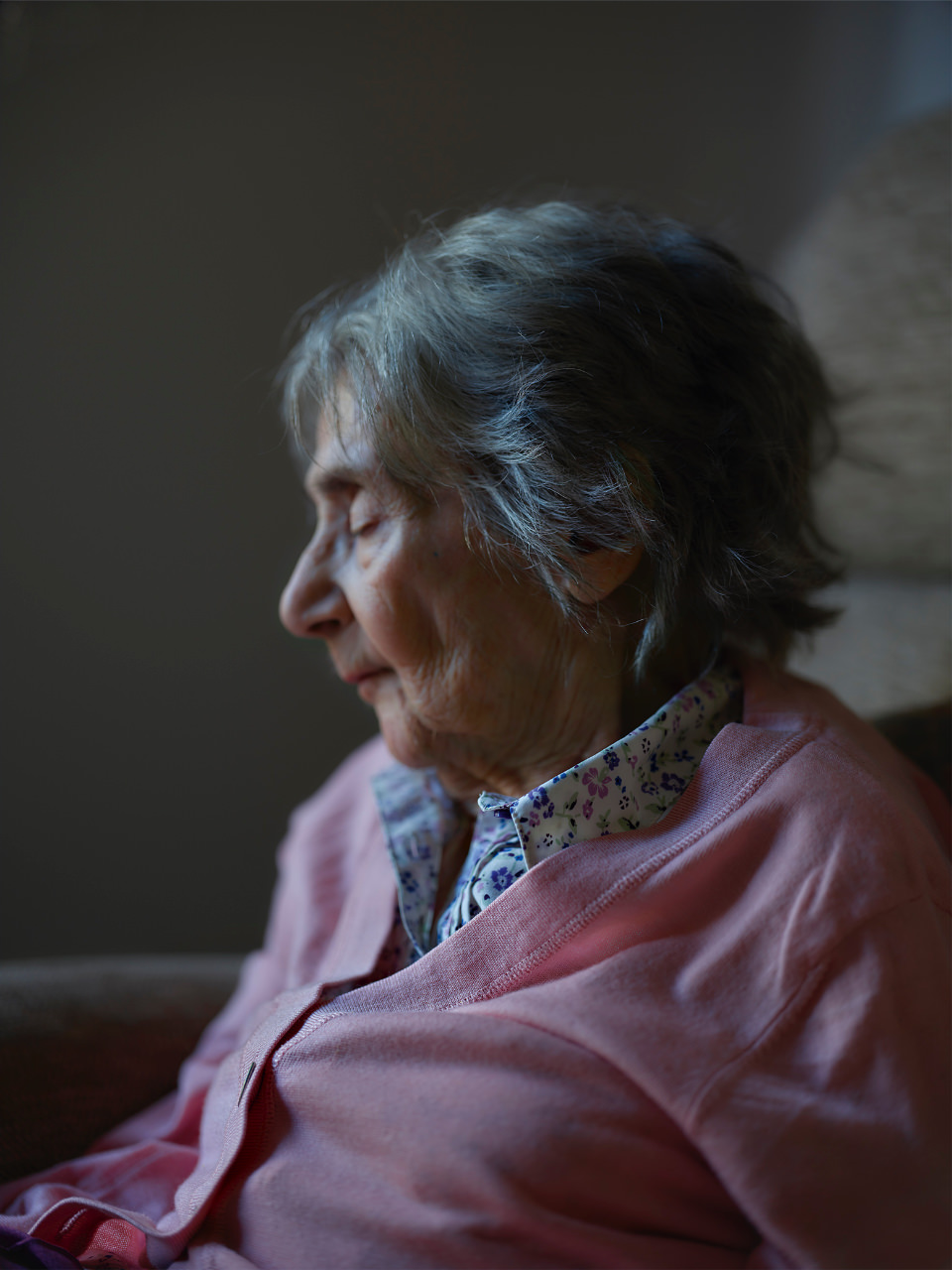
© Paul Graham
Another series of images I've been working on recently is The Seasons, a body of work that looks at the main US bank headquarters in Park Avenue, New York. I photographed the major banks, like JPMorgan Chase, Citibank or Bank of America - their names clearly appear on the buildings in the images - at lunchtime, when the area is packed with employees coming outside. The work references the Flemish paintings of the 16th century by Brueghel - his depictions of snowy landscapes or summer harvests where people - farmers, workers, land owners - are scattered across the landscape. He famously made 6 paintings known as 'The Seasons' of life there (they believed there were 6 seasons then, not 4) So I have re-interpreted that - an image for each of the seasons, Spring, Summer, Winter, etc, but... flipping it from peasant farm life in 16c North Europe, for 21st century financial life in NYC. This will open in Pace Gallery in New York in March.
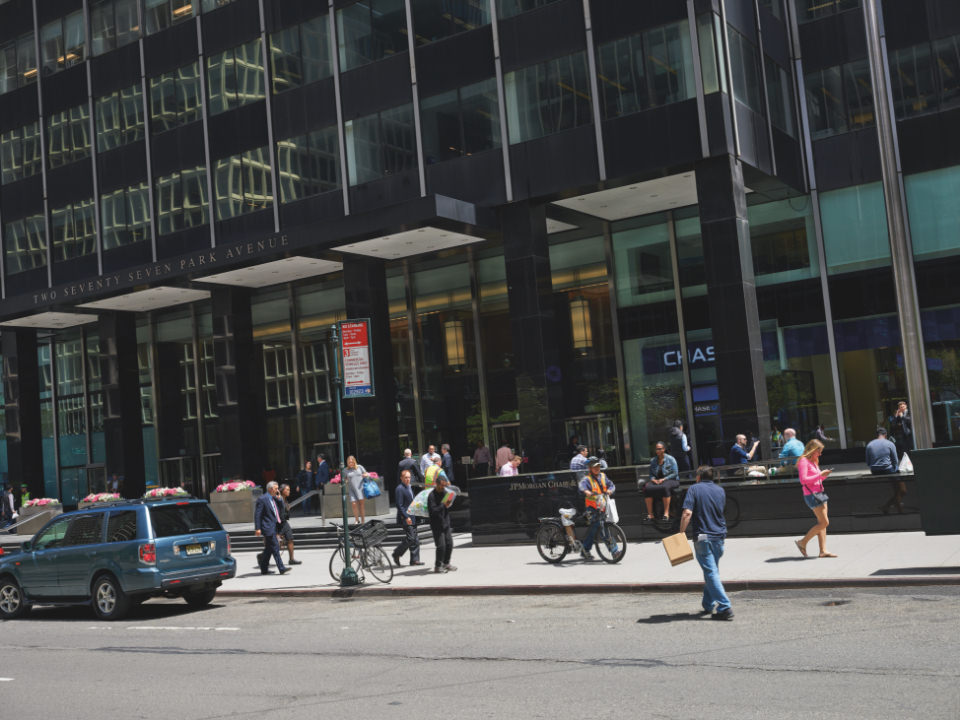
“The seasons” © Paul Graham
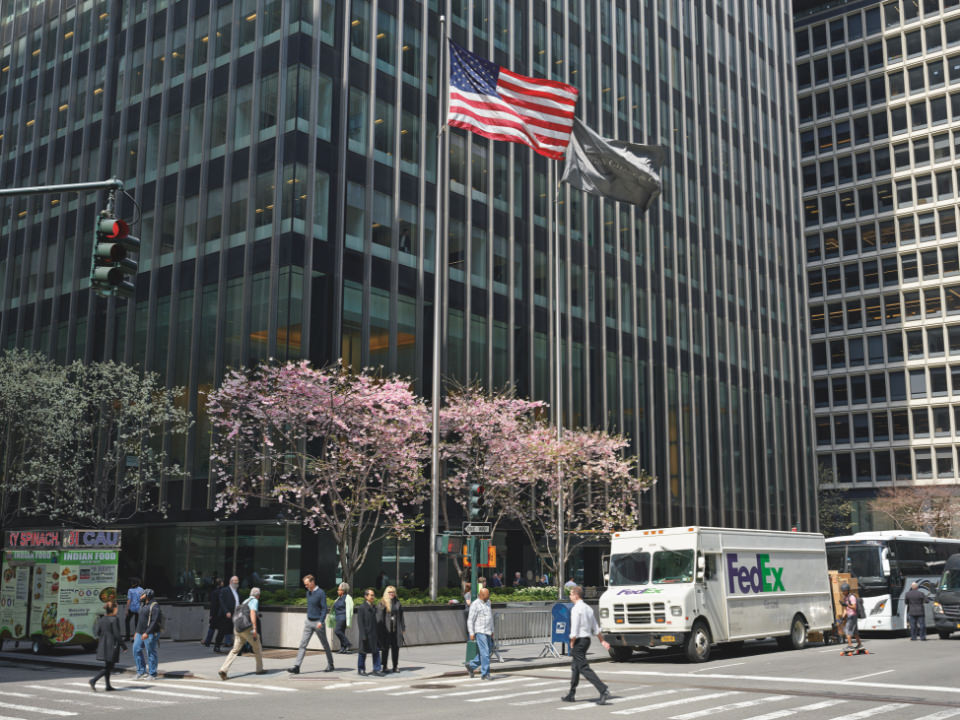
“The seasons” © Paul Graham
It's difficult, but the effort is worth it in my opinion.
There is still so much I want to do. It's a struggle sometimes, and I have the occasional slump. Every now and then I doubting myself — I can't do anything; but I try to fight my way through these periods, because even today I'm still deeply in love with photography. It is such a pure artform - seeing, it is about really seeing. What can be more essential than that?
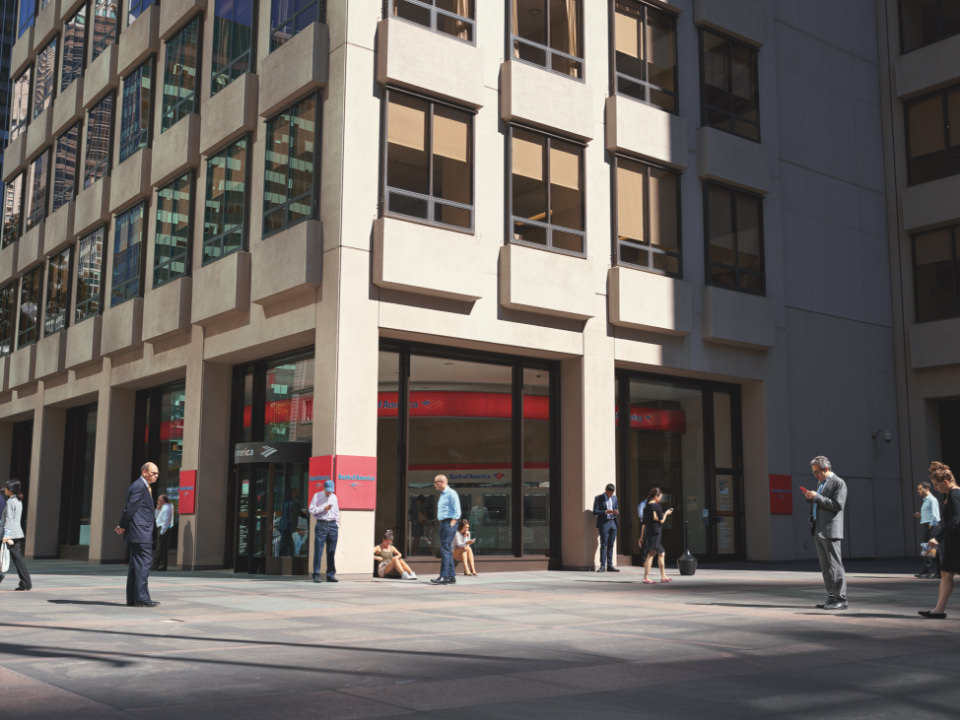
“The seasons” © Paul Graham
Paul Graham is a British Photographer, living in New York. His work has been widely exhibited for over 35 years, notably including a mid career survey show at the Whitechapel Gallery in 2010, and a 2009 solo show at the Museum of Modern Art, New York. Major group shows include the 49th Venice Biennale, and the Tate Gallery's landmark exhibition 'Cruel and Tender' c.20th century photographery. He has published over 20 books of work, including '*a shimmer of possibility*', in 2008, which won the Paris Photo prize as the most important photography book of the past 15 years. He has won various awards and prizes, including a Guggenheim Fellowship, the Deutsche Bourse award, and the Hasselblad Foundation prize, considered by many to be photography's highest honor.